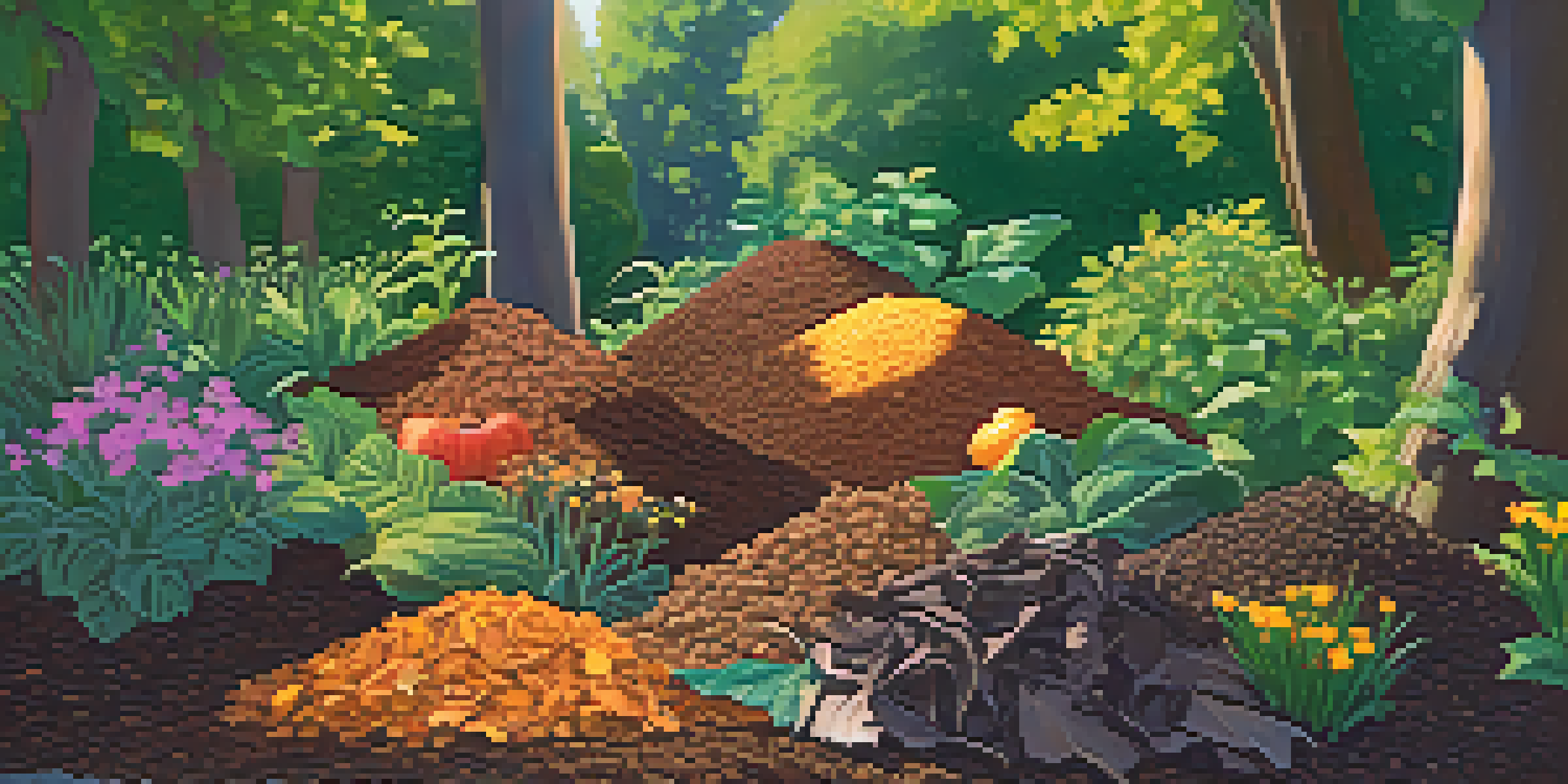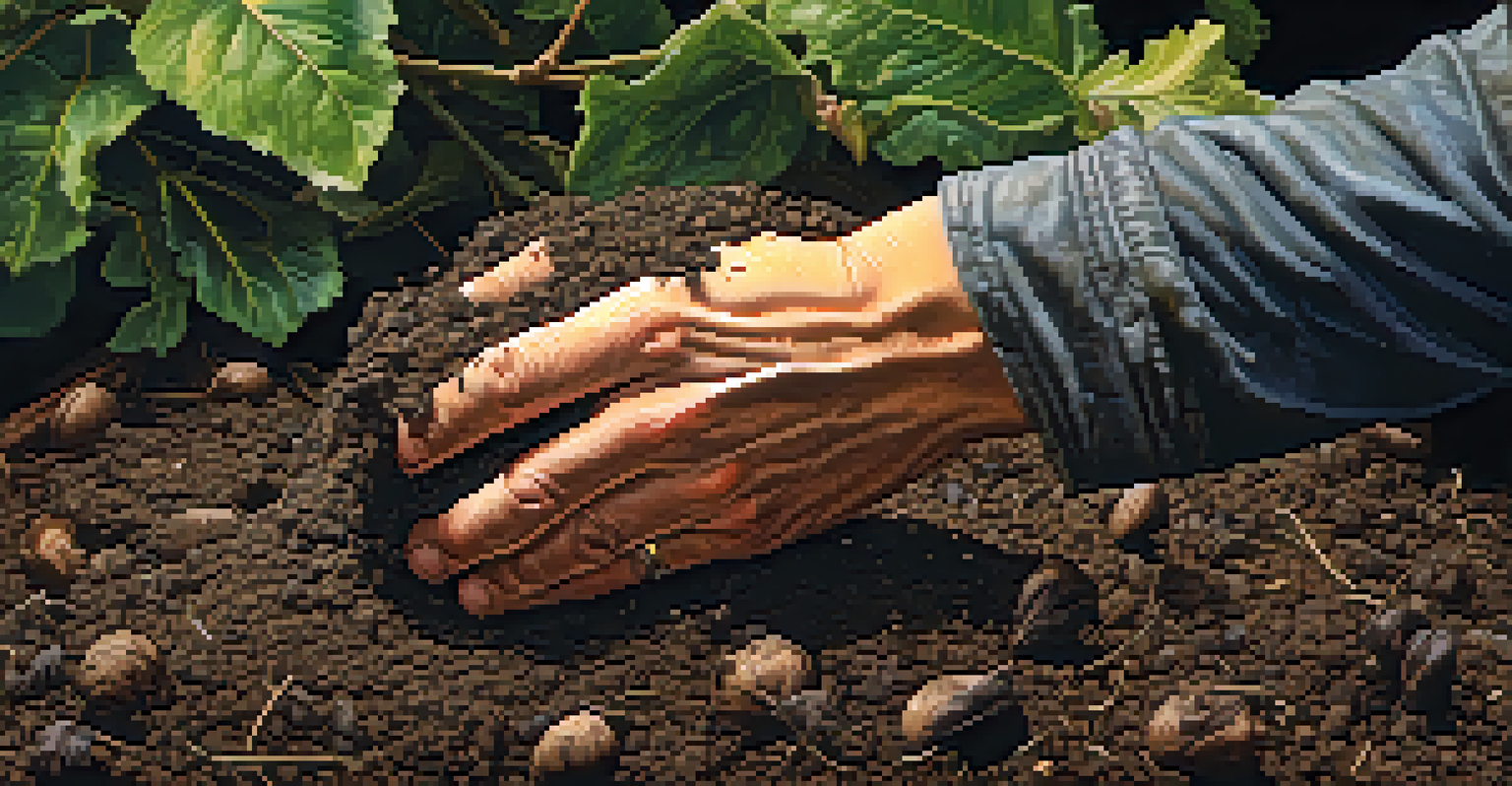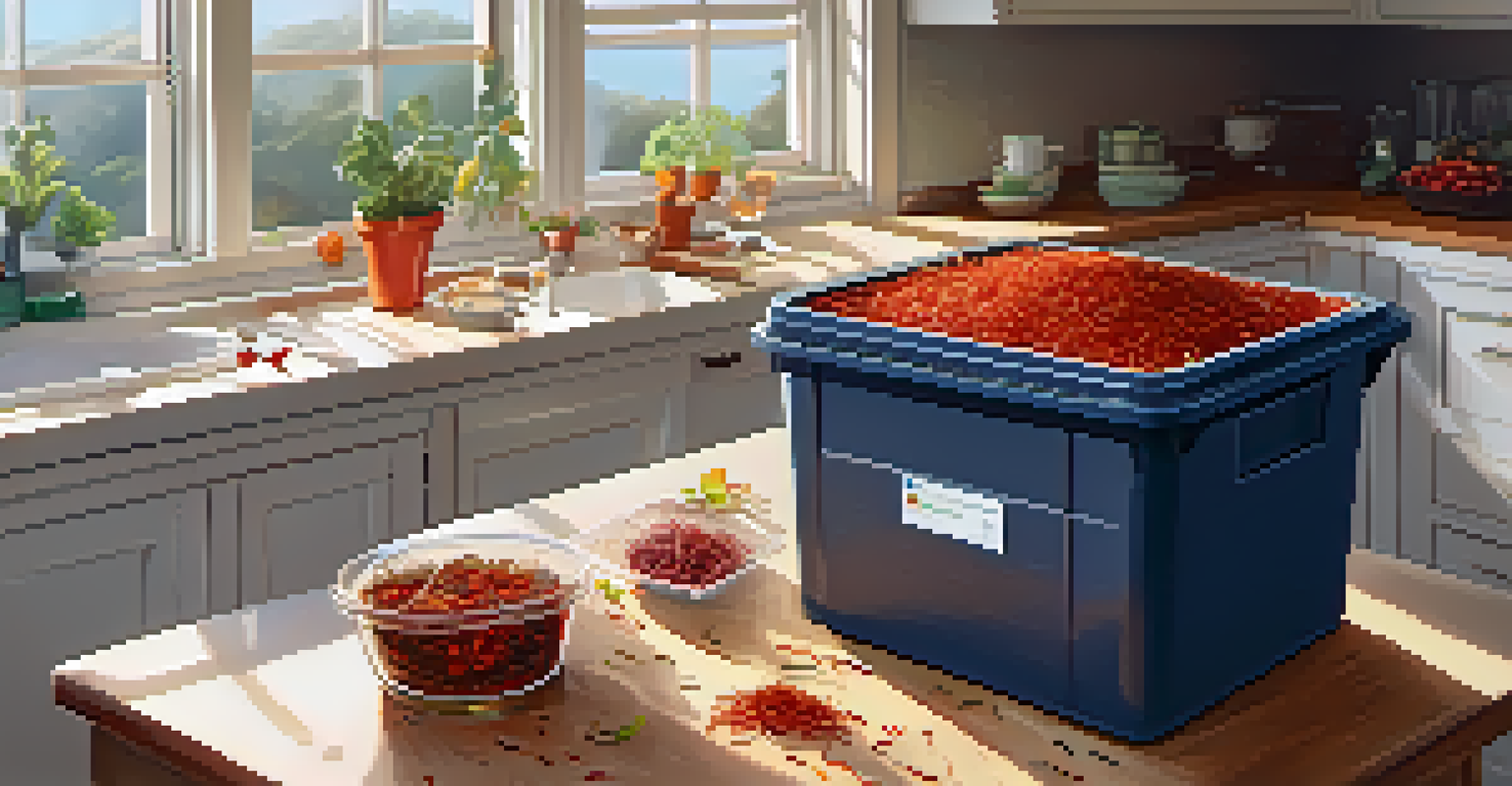Composting: Enhancing Soil Health Through Organic Waste

What is Composting and Why is it Important?
Composting is the natural process of recycling organic matter, such as food scraps and yard waste, into a rich soil amendment. This process not only reduces the amount of waste sent to landfills but also enhances soil health. By returning valuable nutrients to the soil, composting supports plant growth and promotes sustainable gardening practices.
Composting is a natural process that transforms waste into a valuable resource, enriching the soil and supporting plant growth.
Through composting, we harness the power of nature to break down organic materials, creating a habitat for beneficial microorganisms. These tiny allies help decompose waste, turning it into a dark, crumbly substance known as compost. This nutrient-rich compost can significantly improve soil structure, fertility, and moisture retention.
In essence, composting is an eco-friendly way to manage waste while simultaneously enriching our environment. It’s a win-win situation that helps us reduce our carbon footprint and creates healthier gardens and landscapes.
The Science Behind Composting: How It Works
At its core, composting relies on the natural decomposition process that occurs in nature. Microorganisms such as bacteria and fungi break down organic materials in the presence of oxygen. This aerobic process generates heat, which further accelerates decomposition, creating conditions for the growth of these beneficial organisms.

To achieve a successful compost pile, it’s essential to maintain a balance of green materials (rich in nitrogen) and brown materials (rich in carbon). Green materials include kitchen scraps like vegetable peels, while brown materials consist of dry leaves and cardboard. This balanced mix ensures that the composting process remains efficient and effective.
Composting Enriches Soil Health
Composting recycles organic waste into nutrient-rich compost, enhancing soil fertility and supporting plant growth.
Additionally, turning the compost pile regularly introduces oxygen, which is crucial for aerobic bacteria. This not only speeds up decomposition but also helps prevent unpleasant odors associated with anaerobic breakdown. Understanding these basic principles enables anyone to create their own successful composting system at home.
Types of Composting: Choose What Works for You
There are several methods of composting, each suitable for different lifestyles and spaces. Traditional composting in a backyard bin is great for those with ample outdoor space, allowing for larger quantities of organic waste. However, if you live in an apartment or have limited outdoor access, indoor composting systems like vermicomposting (using worms) can still effectively recycle your kitchen scraps.
The greatest threat to our planet is the belief that someone else will save it.
Another method is the hot composting technique, which involves building a large pile that generates heat quickly, allowing for faster decomposition. This method is ideal for those looking to produce compost in a shorter time frame. On the other hand, cold composting is a more laid-back approach, where materials are simply piled up and left to decompose over time.
Ultimately, the choice of composting method depends on your available space, time commitment, and personal preferences. No matter which method you choose, the end goal remains the same: to turn organic waste into valuable compost for your garden.
What Can You Compost? A Beginner's Guide
Knowing what materials can be composted is crucial for creating a healthy compost pile. Common compostable items include fruit and vegetable scraps, coffee grounds, eggshells, and grass clippings. These green materials provide essential nitrogen, which is vital for the composting process.
In contrast, brown materials like dried leaves, twigs, and shredded paper are equally important as they supply carbon. Maintaining a proper ratio of green to brown materials is key to ensuring that your compost breaks down efficiently and doesn’t produce foul odors.
Balance is Key for Successful Composting
A successful compost pile requires a balanced mix of green materials, like food scraps, and brown materials, like dried leaves.
However, not everything can be composted. It's best to avoid meat, dairy, and oily foods, as these can attract pests and create unpleasant smells. By sticking to the right materials, you can create a productive compost pile that benefits your garden and the environment.
Maintaining Your Compost: Tips for Success
Regular maintenance is essential for a thriving compost pile. To keep your compost breaking down efficiently, ensure that you turn the pile every few weeks to aerate it. This helps introduce oxygen, which is needed by aerobic microorganisms to do their work effectively.
Monitoring the moisture level is also crucial. Your compost should be as damp as a wrung-out sponge—not too wet or too dry. If it feels dry, simply add some water, and if it’s too wet, mix in more brown materials to absorb excess moisture.
Lastly, be patient! Composting is a natural process that takes time, often several months, depending on the method you choose and the materials used. With a little attention and care, you'll soon have rich compost that enhances the health of your soil and plants.
Using Compost: Benefits for Your Garden
Once your compost is ready, it can be a game-changer for your garden. Adding compost to your soil improves its structure, making it more aerated and easier for plant roots to grow. This helps plants access nutrients more effectively and boosts their overall health.
Using compost also enhances soil fertility, providing a slow-release source of nutrients needed for plant growth. Unlike synthetic fertilizers, which can leach away or lead to nutrient imbalances, compost enriches the soil naturally and sustainably.
Composting Supports Sustainable Living
By composting, we reduce landfill waste and methane emissions, promoting a more sustainable lifestyle and a healthier planet.
Moreover, compost helps improve moisture retention, reducing the need for frequent watering. This is particularly beneficial during dry seasons, as it helps keep your plants hydrated and thriving without excessive effort. In essence, using compost is a simple yet powerful way to nurture your garden.
Composting: A Step Toward Sustainable Living
Embracing composting is not just about improving your garden; it’s a step toward a more sustainable lifestyle. By composting, you reduce the amount of organic waste that ends up in landfills, which contributes to methane emissions—a potent greenhouse gas. This small change can have a significant impact on our environment.
Moreover, composting fosters a greater connection to the natural world. It encourages mindfulness about waste and resources, prompting us to think about where our food comes from and how we can reduce waste in our daily lives. This awareness can inspire others to adopt eco-friendly practices as well.

Ultimately, composting represents a holistic approach to waste management and environmental stewardship. By transforming organic waste into a valuable resource, we contribute to healthier ecosystems and a brighter future for our planet.